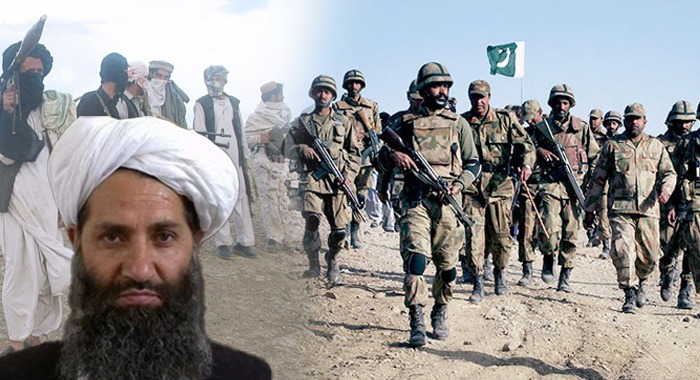Despite repeated pledges by the Taliban regime in Kabul that Afghan soil will not be used against other sovereign states, Pakistan continues to face a surge in cross-border terrorism, often directly traced back to Afghanistan. The stark contrast between Taliban commitments and ground realities has raised serious questions about the regime’s sincerity and its supreme leader’s actual control over militant factions.
Taliban leader Hibatullah Akhundzada had earlier issued a religious decree branding any fighting outside Afghanistan as “illegal,” and instructed all fighters operating abroad to return home. But the continued infiltration of Afghan Khawarij into Pakistan’s tribal areas shows the order has either been ignored or rendered meaningless by groups that now operate freely across the Durand Line.
In recent weeks, Pakistani intelligence and military operations in Khyber Pakhtunkhwa have intercepted multiple Afghan-led terrorist activities. One captured militant, Shah Mahmood, revealed that a nine-member cell, including five Afghan fighters, crossed into Waziristan, attacked the Karak gas facility, looted weapons and equipment, and fled back to Afghanistan.
Similarly, on July 17, Pakistani forces apprehended five Afghan suicide bombers attempting to breach the border fence in Ghulam Khan sector, North Waziristan. Their mission was clear — enter Pakistan to carry out attacks. Other arrested militants have confirmed repeated infiltration efforts, with Afghan nationals making up a large portion of the ranks.
In a chilling admission, one captured terrorist, Saifullah, said that in recent months, at least 11 militants had crossed from Afghan territory into Pakistan, six of them Afghan nationals. The involvement of Afghan fighters has also been confirmed in high-profile attacks in Zhob Cantonment and the FC camp in Muslim Bagh, Balochistan, where terrorists killed and injured security personnel and civilians.
Analysts warn that this growing Afghan presence in Khawarij formations poses a grave threat to peace in Khyber Pakhtunkhwa, and is turning local communities into front-line targets. Despite Pakistan’s repeated diplomatic efforts and public warnings, the Taliban leadership continues to deny responsibility while enabling safe havens for anti-Pakistan elements within its territory.
The Taliban’s duplicity — pledging non-interference abroad while sheltering and unleashing chaos across the border, is no longer just a political concern. It is a regional security crisis.
Critics also question whether the Taliban’s supreme leader truly holds authority, or if the regime has fragmented into loosely aligned warlord factions pursuing their own ideological and financial agendas.
To restore lasting peace in the tribal belt, observers argue that Pakistan must take decisive action against all facilitators of terror, including sympathisers among political circles and local collaborators. A joint civilian-military strategy, combined with public support, is seen as crucial to confronting this cross-border insurgency and ensuring the region does not descend further into chaos.





